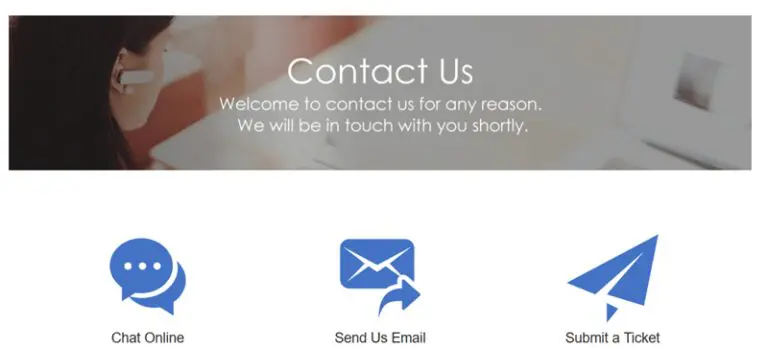The security service industry was originated in the United States in the early years. After half a century of industry development and evolution, it has gradually developed into a mature industry globally. The security market worldwide has an annual growth of 10 percent during 2016-2018 and a total of US$ 275.8 billion by 2018. In particular, the Chinese security market has developed rapidly in the past 10 years, reaching approximately US$ 1.1 trillion in 2018. The current domestic security market is already a highly mature market, with pioneering and leading corporations, for instance, Hikvision, Dahua Technology, and Uniview. With intensified market competition domestically, market dividends have gradually diminished. The security market overseas has countless opportunities, especially the national markets along the “Belt and Road” is an opportunity for Chinese security brands to expand overseas.

Security manufacturers and brand enterprises should start from the demands of various application segments, for instance, housing, buildings, track, airports, railways, electricity, schools, shopping malls, city surveillance monitoring system, convention and exhibition centers, buses, stadiums, entertainment venues, banks, etc. They should research and develop products that are highly distinctive and advantageous, through finding innovative and applicable aspects in various markets. Consolidating security with technologies, such as artificial intelligence (AI), cloud computing, big data, and the Internet, can elevate the overall security industry. This does not only open new corridors of survival and development for the security industry, but also successfully expand the Chinese security brand enterprises overseas. Several brand enterprises have pointed out that the possibility to grow in the overseas security market is much greater than that of the domestic market.
Given that users concern most about quality and service, which are also the solid foundation where enterprises depend on to survive and further expand their businesses. For security corporations to enter overseas markets, it is necessary to improve product quality and strengthen after-sales service. Callnovo is a one-stop global contact center, dedicated to providing global corporations with pre-sales, after-sales, and technical support solutions in over 30 languages in the global market, including in English, Spanish, French, Russian, German, Indonesian, Vietnamese, etc. Callnovo has accumulated fruitful experiences related to outsourced overseas customer service solutions in multiple industries for over 10 years, from building a team of localized and native-speaking customer service representatives, to the development and integration of customer relationship management (CRM) systems, and further to the development of cloud communication platforms and artificial intelligence (AI). Among all other industries, Callnovo would like to share the precious experiences of outsourced customer service in the security service industry. Chinese security enterprises need to consider the market characteristics of various countries before entering the overseas market, in particular, the after-sales customer service. They must also provide customized comprehensive customer service and technical support solutions tailored to the market characteristics of various countries. Outsourcing to a professional global contact center operation team is an effective and practical way. This article will summarily illustrate the experience of localizing customer service for Chinese security products in overseas markets, especially North America, Europe, and South America.
1. North American Market – High Demand, Competitive, Value-Added Services, and Brand-Building
North America has the world’s largest security market, with the United States accounting for about 90%, Canada 8%, and Mexico 2%. Security enterprises seek to enter the North American market due to the large demand, intense price competition, plentiful manufacturers, and mature market.
English, Spanish, and French are the necessary languages needed for customer service in the North American market. 82.1% of Americans regard English as their mother tongue, while 10.7% speak Spanish. 56% of the Canadian population speaks English, while 20.6% speak French.
International Toll-Free Numbers, official email address, and live chat are the necessary channels for customer service in the North American market. In particular, it is extremely common and popular for corporations to use International Toll-Free Numbers in North America. Americans and Canadians, especially those over 50 years old, still enjoy the traditional way of communicating and seeking solutions for customer service over the phone, as the mobile internet service there is not as convenient as in China. As International Toll-Free Numbers has a higher penetration rate and is more popular in North American than in China, selecting a memorable Toll-Free Number can effectively improve brand image. The Toll-Free Numbers does not only applicable in the US but also in Canada. Given that the Toll-Free Numbers are relatively cheap, it is a must for overseas Chinese corporations to possess a Toll-Free Number to enter the North American market, which can then be printed on the product and given manual. Callnovo outsources professional customer service with representatives who are specialized in English, Spanish, and French, providing authentic customer service and native communications for overseas Chinese security corporations via phone, online, and email. not to mention the difficulty of recruiting foreign language talent for evening shifts in China, outsourcing the customer service enhances the overall language fluency, as well as minimizes the cultural differences in consumers’ spoken and written communication.
SMS is one of the most important customer service channels in the North American market, which is also easily overlooked by Chinese security corporations. Although most Chinese consumers communicate using WeChat and have turned away from traditional SMS, SMS remains an important and efficient way of interacting in North America. Callnovo accepts customers’ product repairs via SMS and notifies the processing results accordingly. Typical scenarios include receiving SMS from customers with photos indicating a security product malfunction, replying with product troubleshooting instructions via SMS, or updating consumers the latest freight order numbers for product replacement and order status. Efficient customer services enhance the corporate brand image. SMS provides a personalized experience for consumers that do not occupy much of their time. Through successful SMS troubleshooting experiences, customers are more likely to submit a five-star rating on Amazon or eBay.

Facebook, Twitter, and Instagram are essential social media channels for customer service in the North American market. To achieve long-term success in the North American market, Chinese security brands should set up social media accounts as soon as possible and remain active. Similar to brand-building and operating a WeChat public account and Weibo’s official account, Facebook and Twitter are effectively used for brand promotion, responding to customers’ demands, and conducting public relations events.
Since 2018, Callnovo has launched an overseas outsourced customer service solutions for Zosi, China’s leading security brand, providing them with a complete customer service outsourcing solution in the US. Callnovo has successfully established and effectively operated the one-stop professional solution of outsourced English-speaking customer service for Zosi in the North American market. The professional customer service, labor cost-efficiency, and customer service quality are regarded as enablers of value-added services or vital factors for Zosi in the North American market.

2. European Market – Stable Demand, High Product Quality, and Multilingual Consumers
The Western European security market, including Germany, the United Kingdom, and France, has occupied a third of the global security market. It has a stable demand, high product quality, diverse competition, significant product differentiation, and various distribution channels.
English, Spanish, Portuguese, French, German, Italian, and Russian are the necessary languages required for customer service representatives in the European market. Although the European market has a similar telecommunication and customer service requirement as North America’s, it is crucial to use their official language in meeting customer expectations. By outsourcing to a professional global contact center operation team, specializing in English, German, Italian, Spanish, Portuguese, French, and Russian, can customize telecommunication solutions efficiently and support language and cultural needs of customer service and technical support personnel. The differences between British and American English in the areas of spelling, vocabulary, and grammar are insignificant. When it comes to oral, the differences between British and American accents become more obvious. It is then advisable to select a representative team with British accents to provide telecommunication outsourcing services via phone or SMS. Europeans are more impressed by the quality experience received, as most of them are more elegant and gentlemanly than American customers, who value more in troubleshooting effectiveness.
3. South American Market – Immature Consumer Market, and Problematic Logistics Arrangements
South American security users aim at maximizing the overall cost-effectiveness than product quality. In terms of product distribution channels, domestic security enterprises rely heavily on imports and wholesales from Asian, European and American markets, and mechanical installation, due to insufficient domestic manufacturers. Given that the domestic consumer market is gradually developing as consumers are purchasing security products through e-commerce or retail channels, it is suggested to establish customer service channels as early as possible.
Spanish is the official language in South America, except for Portuguese and French in Brazil and Haiti respectively. Although the South American market has similar customer service channels to North America, South American countries each have different unique service cultures from the United States. By outsourcing to a professional global contact center operation team, specializing in Spanish and Portuguese, can customize telecommunication solutions efficiently and support language and cultural needs of customer service and technical support personnel. South American consumers have relatively low consumption power, aiming at maximizing the overall cost-effectiveness than the experience of customer service and technical support. Providing parcel tracking services to relieve consumers’ anxiety due to the deficient logistics arrangement in South American is important. By providing seemingly inconspicuous package tracking services and remote support can impress and gradually build a brand image with South American consumers. Chinese overseas security corporations should not neglect the effect of word-of-mouth and e-commerce rating given by the passionate and highly populated South American consumers.
Conclusion
Chinese overseas security enterprises capitalize on opportunities presented by China’s intelligent manufacturing and the Belt and Road Initiative to create long-term stability and consistency. There is no shortcut to foster the growth and brand values of enterprises, except for the untiring commitment in technological innovation, marketing channel expansion, and the provision of high-quality pre-sales and after-sales services in the long-term, in order to ensure a room in the international market.

